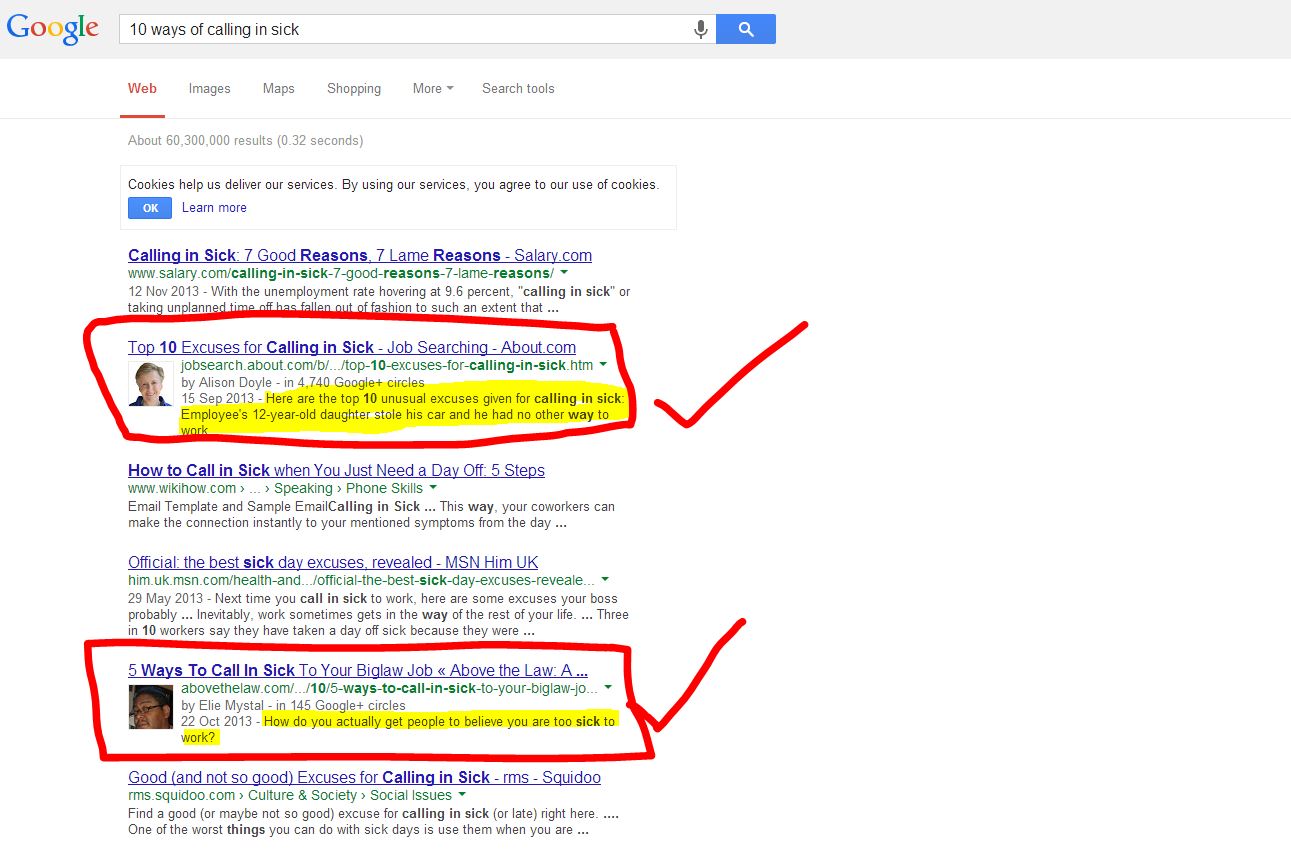Google answers: should every page have a different meta description?
Google has released a new Webmaster Help video featuring Matt Cutts talking about duplicate and unique meta descriptions. Cutts answers this submitted question: Is it necessary for each single page within my website to have a unique metata description?
Firstly, let me explain. Meta descriptions are commonly used on search engine result pages (SERPs) to display preview snippets for a given page. This is normally composed of about 155 characters in length. You will have noticed that sometimes these seem very tidy and appropriate, and other times Google seems to have just picked up random words from the page.
This is because in the first case you can, by adding meta descriptions, ask Google to display these rich snippets in its search results.
If you don’t Google will grab some of the content on the page in question and display, hoping for the best.
On the screenshot below you will see the ones marked which have clearly been given meta descriptions and those which have not.

Contrary to popular belief meta descriptions have no direct influence on search engine ranking, Google does not use it to determine which results to show where in its search algorithm.
BUT, the better and more relevant the snippet on the search result the higher the chance of someone clicking on it.
Hence better snippets enjoy higher click-through rates, which would then lead to more visits to the site, which would eventually have an indirect effect of improving the site’s ranking.
Moz.com explains that these short paragraphs are “a webmaster’s opportunity to advertise content to searchers and to let them know exactly whether the given page contains the information they’re looking for.”
The question which often arises is this, is it better to have the same tidy, keyword rich meta description for all the secondary pages of a website or to not have one at all? In other words, are duplicate meta descriptions better than no meta descriptions?
Here’s what Google’s Matt Cutts has to say about this…
“The way I would think of it is, you can either have a unique metatag description, or you can choose to have no metatag description, but I wouldn’t have duplicate metatag description[s],” Cutts says.
“In fact, if you register and verify your site in our free Google Webmaster Tools console, we will tell you if we see duplicate metatag descriptions, so that is something that I would avoid.”
“In general, it’s probably not worth your time to come up with a unique meta description for every single page on your site,” he adds.
“Like when I blog, I don’t bother to do that. Don’t tell anybody. Ooh. I told everybody. But if there are some pages that really matter, like your homepage or pages that have really important return on investment – you know, your most featured products or something like that – or maybe you’ve looked at the search results and there’s a few pages on your site that just have really bad automatically generated snippets. We try to do our best, but we wouldn’t claim that we have perfect snippets all the time.”
“You know, in those kinds of situations, then it might make sense to go in, and make sure you have a unique handcrafted, lovingly-made metatag description, but in general, rather than have one metatag description repeated over and over and over again for every page on your site, I would either go ahead and make sure that there is a unique one for the pages that really matter or just leave it off, and Google will generate the snippet for you. But I wouldn’t have the duplicate ones if you can help it.”
To find out more about this or other Search Engine Optimisation cunundrums CONTACT VOODO INTERNET MARKETING HERE or complete the form below those fancy stars which you will hopefully give us a 5 rating for this stupendous piece of literary craftsmanship.
Brought to you by Voodoo Internet Marketing
Voodoo Internet Marketing are specialists in PPC, SEO, web design, social media marketing, and lead generation for the Marbella area, in the Costa del Sol, Spain.
Share this:

